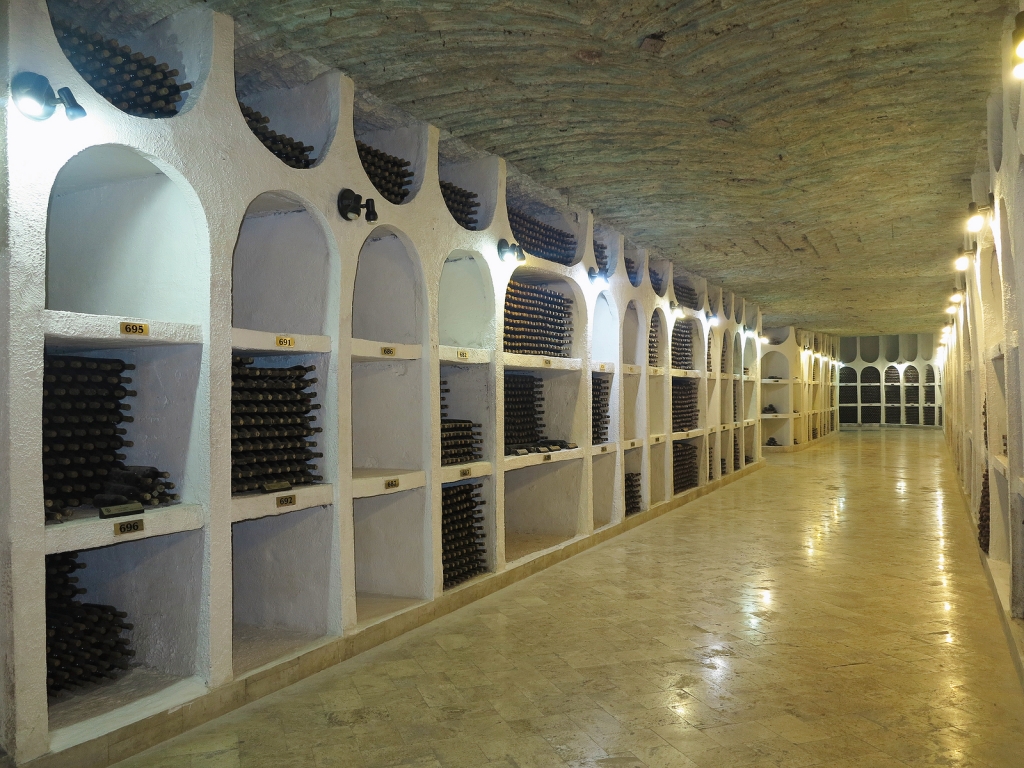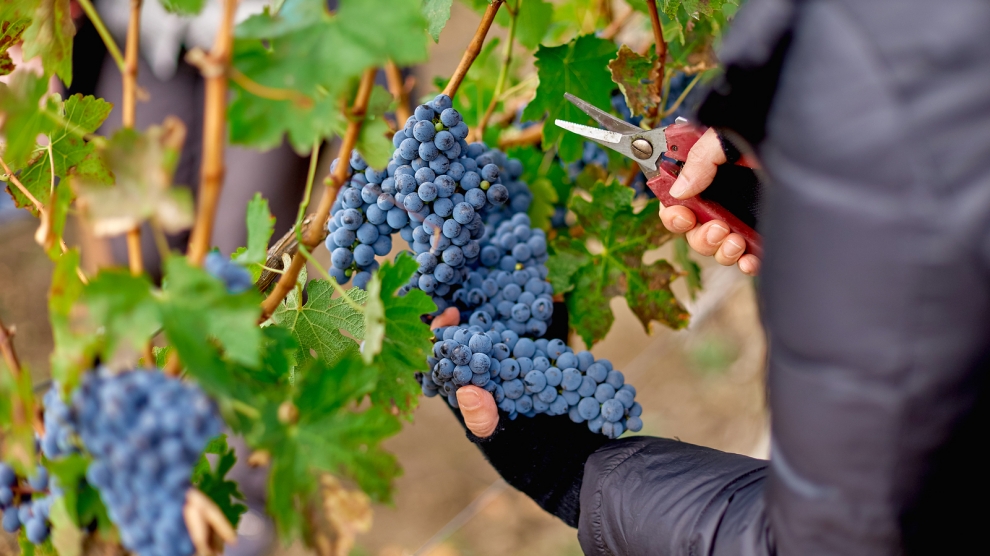Russian consumers, who got a taste for Moldovan wine during communist times, were no doubt delighted when their government finally eased restrictions on the import of their favourite tipple last year. Before Russia’s latest embargo on Moldovan wine began in 2013, Moldova supplied Russia with 10 per cent of its wine. At the time of a previous ban, from 2006-07, Russia accounted for 60 per cent of Moldova’s wine exports. Now, there might not be enough left to send north: the best Moldovan wine is finally heading west.
“After the Russian embargo of 2006 wine producers needed to discover other markets,” says Vadim Burunsus, a winemaker at the Poiana Winery, set in central Moldova between green fertile hills and cooling forests. “Our wines are now winning international awards, something which encourages us to keep going, to keep producing unique wines.”
While in both 2006 and 2013 Russia made up some nonsense nobody believed about quality and safety, the reasons behind the bans were purely political: a response to Moldova’s slow but steady move towards the European Union. Moldovan wine has followed in its stead. Once difficult to find even in specialist wine stores, Moldovan wine is the talk of many an EU capital, not least London. “The British wine consumer is open-minded,” says Ludmila Gogu, general director at Chateau Vartely, whose wines can be found throughout the UK, often distributed by wine clubs. No wonder Russian drinkers are wondering if they might come to regret their government’s folly.
Empires
“For many centuries we have been part of neighbouring empires, which made it almost impossible for a Moldovan brand to emerge,” Mrs Gogu tells Emerging Europe. “Now, finally, Moldova is starting to find its voice in the wine world.”
Moldova is a predominantly agricultural economy, with wine its most important product. The large-scale production of wine employs around 150,000 people – about 10 per cent of the labour force – in farms and factories. Grape growing and winemaking is also the biggest cottage industry in rural parts of the country, and almost all village households have their own vines. Wine is a huge part of Moldovan society: no wonder, they have been making wine here for 2000 years.

Perhaps the best-known of the Moldovan wineries is Cricova, famous as much for its vast cellars as much for its crisp sparkling wines, all of which compare favourably with many champagnes.
“Our cellars provide the perfect conditions for the winemaking process,” says Sorin Maslo, Cricova’s commercial director. “The temperature is a constant 10-12°C, and humidity always at around 96-97 per cent.”
Cricova’s extensive cellars – there are around 110 kilometres of them, of which around 80 kilometres are currently in use – were in large part created in the 15th and 16th centuries when limestone was excavated to be used in the construction of Chișinău, Moldova’s capital. They can be visited, and along with similar cellars at the Mileștii Mici winery have become perhaps Moldova’s leading visitor attraction.
Mr Maslo is keen to point out the microclimate which makes Moldova so suitable for growing just the right kind of grapes. “It’s unique,” he tells Emerging Europe, “found nowhere else in the world.”
Terroir
The microclimate creates the prime soil conditions that the country’s winegrowers have come to make such good use of.
“Yes, the terroir, our soil,” this it what makes our wines unique, agrees Ruxanda Lipcan, sales and marketing director at the Fautor Winery. “That and our traditions, and our know-how,” she adds.
Like Ludmila Gogu she believes that Moldova’s decades of isolation, when it formed part of the Soviet Union, prevented word getting out. She is happy that things are finally moving forward.
“Things have changed radically,” she tells Emerging Europe. “Moldovan wineries are adopting modern technology which is being combined with tradition, allowing us to create some very special wines which have real style. Buyers around the world looking for new wines find what they are looking for in our portfolio.”
A key factor in Moldova’s success is that the soil at each winery has its own characteristics, which means that no two Moldovan wines could ever be accused of tasting similar. It’s the terroir.
“A Pinot Gris from the Ștefan Voda region in the southeast can be totally different from, for instance, the Codru wine region. This is what makes Moldova unique – we share similar winemaking traditions around the country but the wineries distinguish themselves by the individuality of each wine,” says Sergiu Pislaru, director of the Salcuta Winery.
Moldovan wine is also incredibly well-priced, an asset in price-conscious markets, not least Britain.
“Taking into consideration the high quality of our wines, their competitive price and, of course, their originality and uniqueness, there is huge potential for success on the British wine market,” says Denis Bondartsov, commercial director at Timbrus Winery. “What has held us back in the past is poor promotion. This is changing.”
Vote of confidence
Moldova’s wine industry received a major vote of confidence earlier this year when Purcari Wineries raised 186.2 million Romanian lei (40 million euros) through an initial public offering of a 49 per cent stake at the Bucharest Stock Exchange.
“We are helped by a booming Romanian economy, which is by far our largest market, as well as by the strong growth in all central and eastern Europe (CEE) markets where we are present,” Victor Bostan, the founder and CEO of Purcari Wineries, tells Emerging Europe. “As far as the geographical breakdown of sales in value terms is concerned, in 2017 Romania accounted for 35 per cent, Moldova 26 per cent, Poland 12 per cent, the Czech Republic and Slovakia seven per cent, and the whole of Asia and Ukraine four per cent respectively. The remaining 12 per cent were sold to other markets. We want to become a regional champion in CEE, and we have all the premises for that.”
The Moldovans’ hard work is paying off. In 2017 wine exports were 19.4 per cent higher than in 2015. The total value of exports was over 128 million US dollars, the highest figure for several years. Not for the first time, Russia appears to have lost a fight it did not need to start.
—-
Emerging Europe is a media partner of Novus BH Magister’s The Majesty of Moldovan Wine Tasting held in London on 10 October 2018. Click here for more information.

